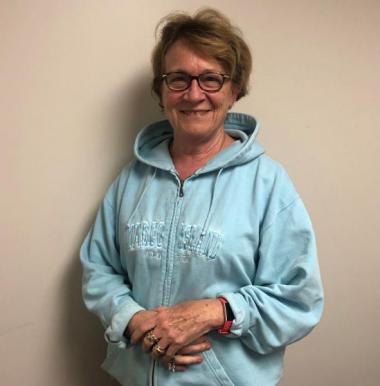
So, a little mini history on breastfeeding. Well because it used to be the norm, way back like when your grandmother might have breastfed, or her mother may have breastfed, but then mothers were taught that formula was just as good as breast milk. And why would you want to look like a cow to have a baby--I’m just giving you a shortened version--to have a baby sucking on you when you can go out and be yourself and have someone bottle feed the baby. It also came around during the wars when mothers had to leave the children with—they didn’t really have nannies back then, but you know the nanas, and they went to work in the factories. Who’s going to feed their babies? So, Enfamil, Nestle, all of those, the pediatricians started to fuel that this is just as good. They were never trained. One of my positions at MGH [Mass General Hospital] was teaching residents how to breastfeed because it wasn’t taught in nursing or medical school. It is now, they have a two-second course, but the younger physicians now are very aware of the importance and value of a mother’s milk. To me it is a miracle fluid. I used to tell mums, “You look at that formula and it’s the same, the same, the same. It comes from a cow. The animals feed their babies and a mother feeds her baby cow’s milk? She should be feeding her milk that’s natural. And they would ask mothers, “Do you want to breastfeed or do you want to bottle feed?” And the pediatricians would say, “Don’t breastfeed, it takes too much time. Oh my God, just bottle feed.” So, it took me some time, to be honest with you, it took me quite a bit of time to re-educate in a gentle way because you don’t want to embarrass anyone if that’s their belief that breast milk and formula are the same. To understand the value of a mother’s milk. My youngest granddaughter is being breastfed and I just love it. Oh, she's just growing and when you understand what it does to a newborn baby, right when it's born for God sakes, it protects the kid’s gut. And it enables that baby to be bonded with the mother because having the baby in the nursery is what we used to do. They took the baby right away put it in the nursery and the mother couldn’t see the baby. Now when the baby is born, it comes out of the vagina and they put it right on the mother’s chest, naked, which is where it should be. And the mother’s breath initiates the baby to breath, the mother’s body, the antibodies she produces in that breast milk specifically for that gestational age for the baby, because it changes.
Germaine Miller Lambergs is a Canadian woman born in 1945. Germaine moved to the United States at a young age where she attended school in the Boston area now known as Newbury Street. It was here Germaine met her husband, with whom she has been with since she was a teenager. Together, they now share seven grandchildren and three children, all who live in the Northeast. Germaine attended nursing school and worked in the nursing profession for many years. Her greatest passion came from being a lactation specialist where she not only taught skills to new mothers, but also to her fellow colleagues. Throughout her life, Germaine has overcome several obstacles including the loss of her father at a young age, being raised by a single mother, failing out of high school, enduring bankruptcy, and is currently a recovering alcoholic. Despite the troubles she has faced, Germaine expressed her gratitude for the life she has lived, the opportunities she has had to help nursing mothers, to become a mother, to be a wife, and to finally take the time to go back to school at Assumption College and take classes that increase the spectrum of her knowledge now that she is retired. Through her experiences Germaine offered this advice to the next generation of women: “You need to be brave and stand up for what you believe in … demand respect, I think it’s very important.”
